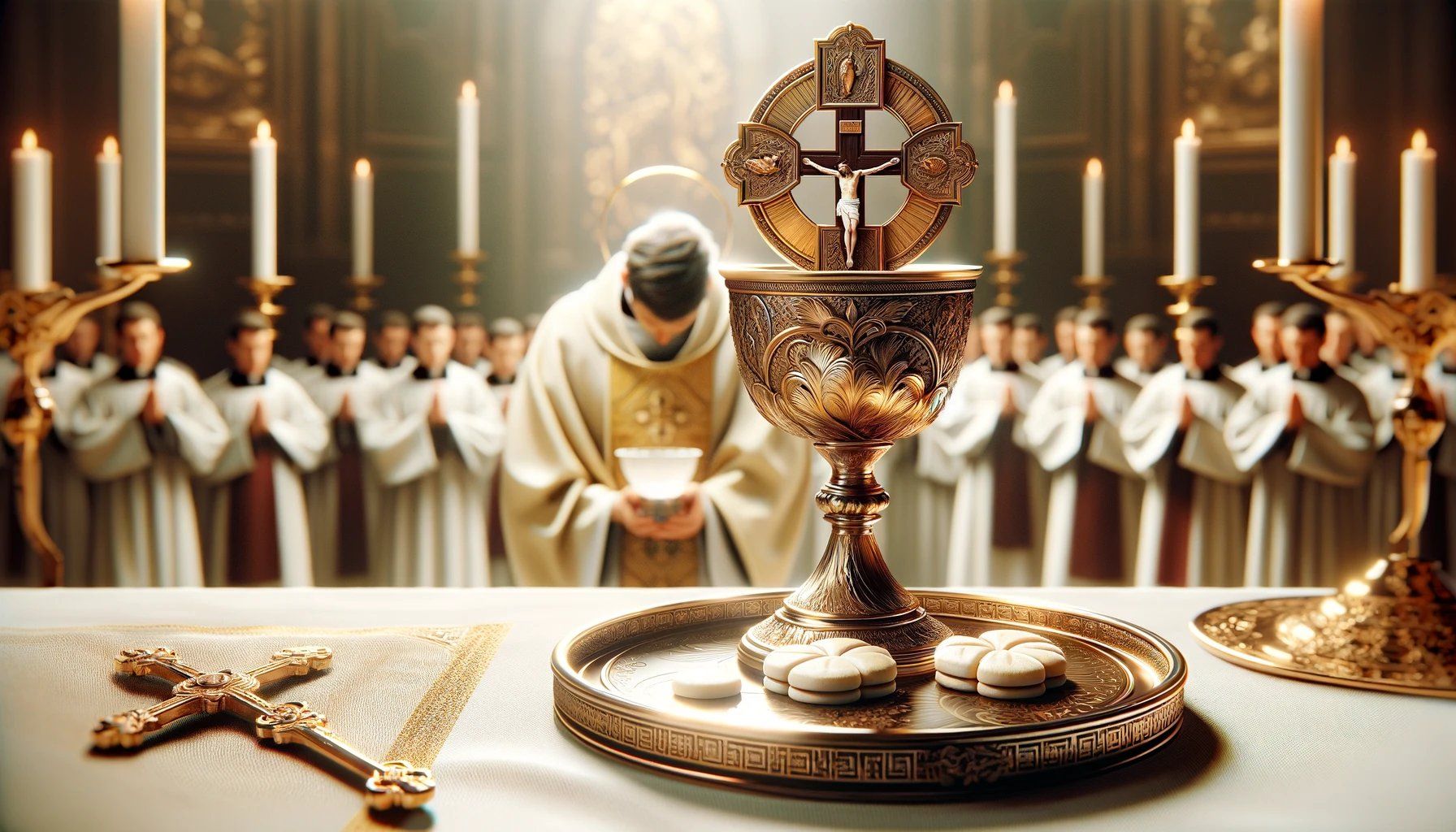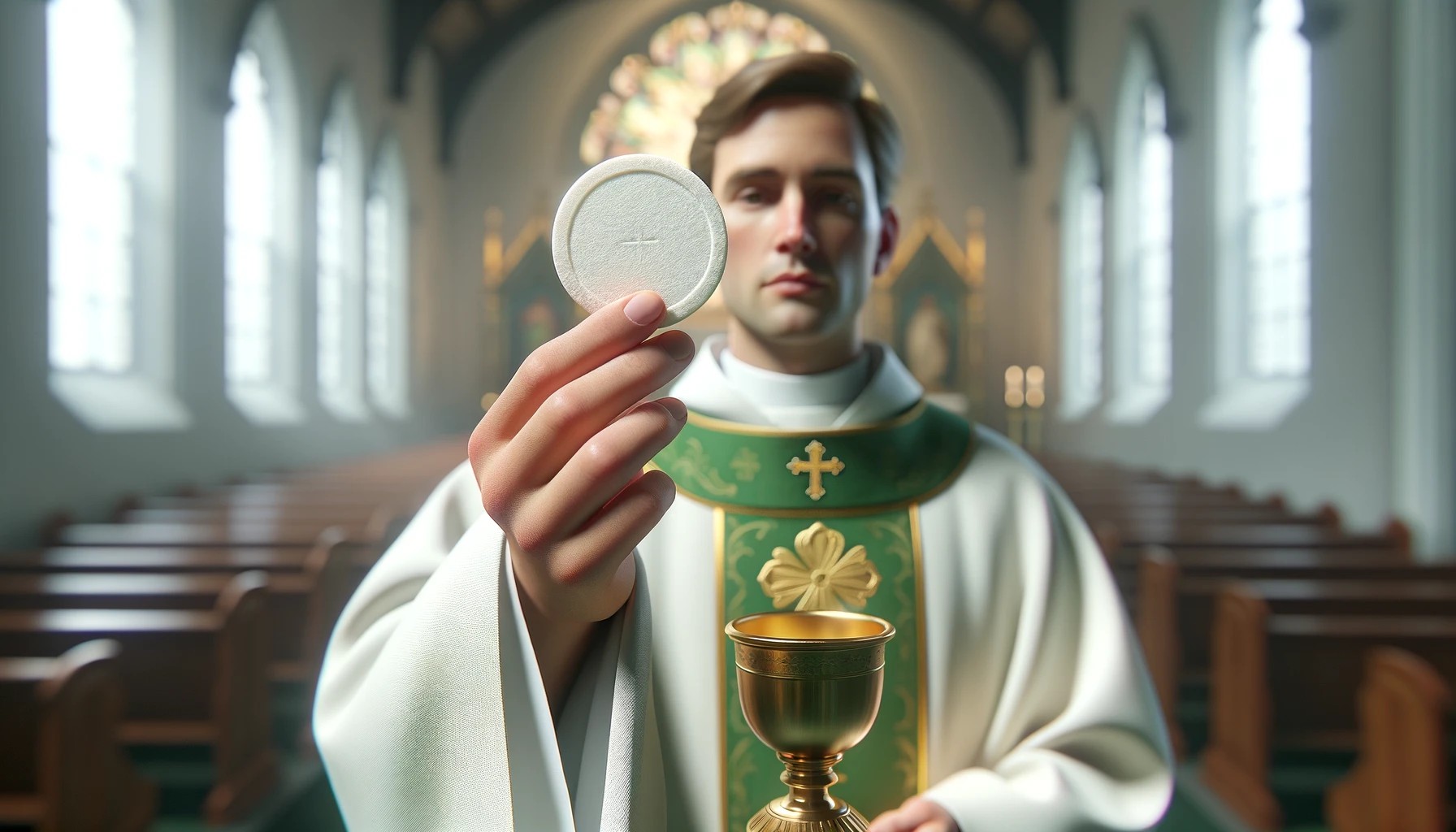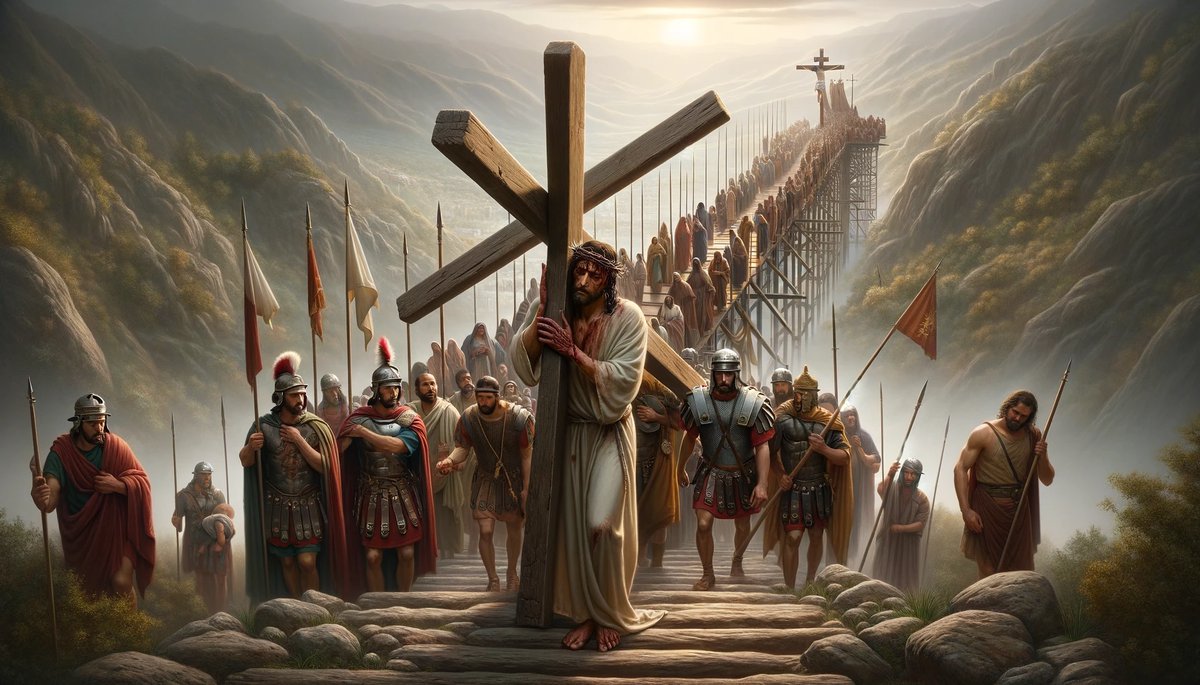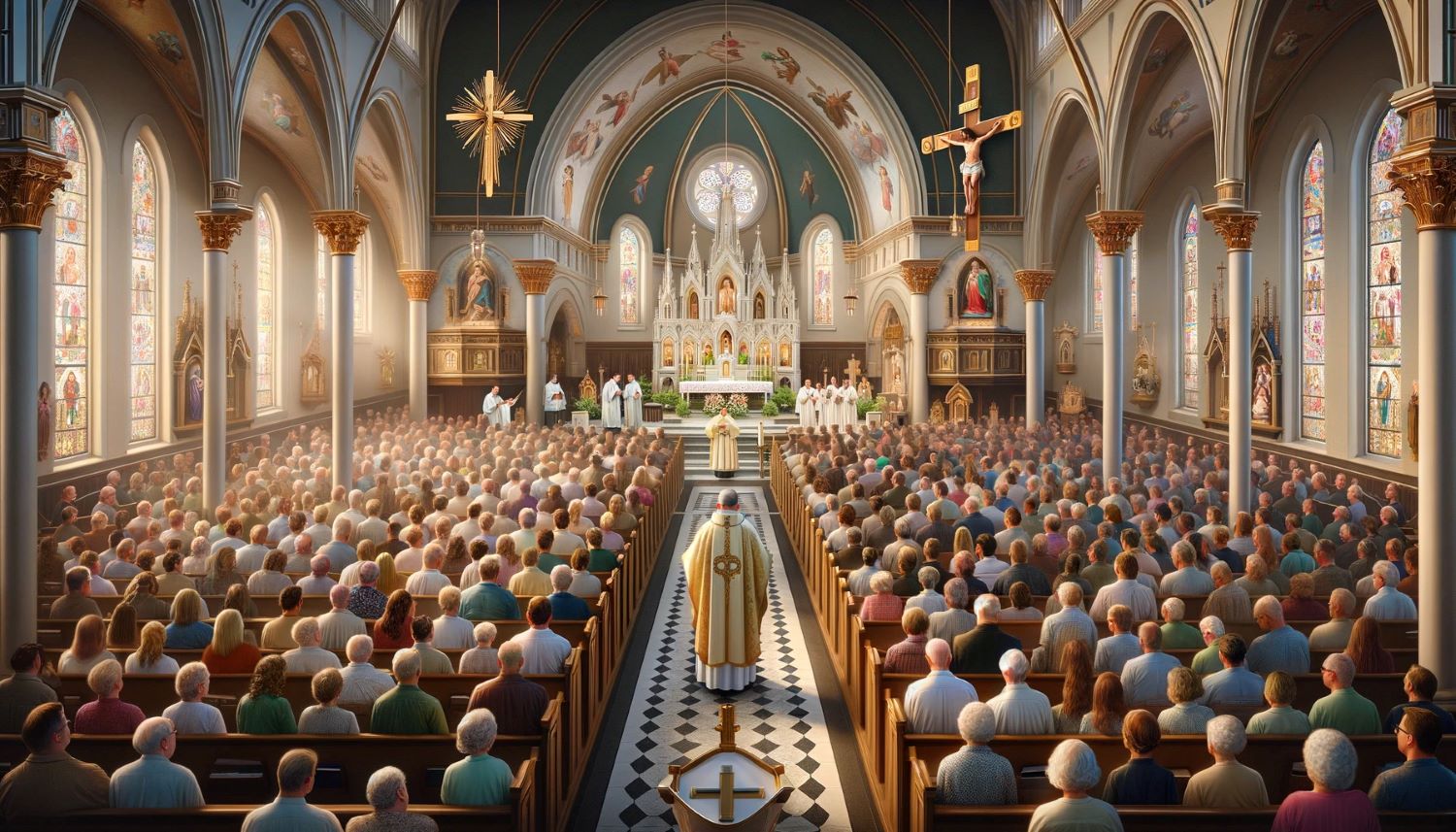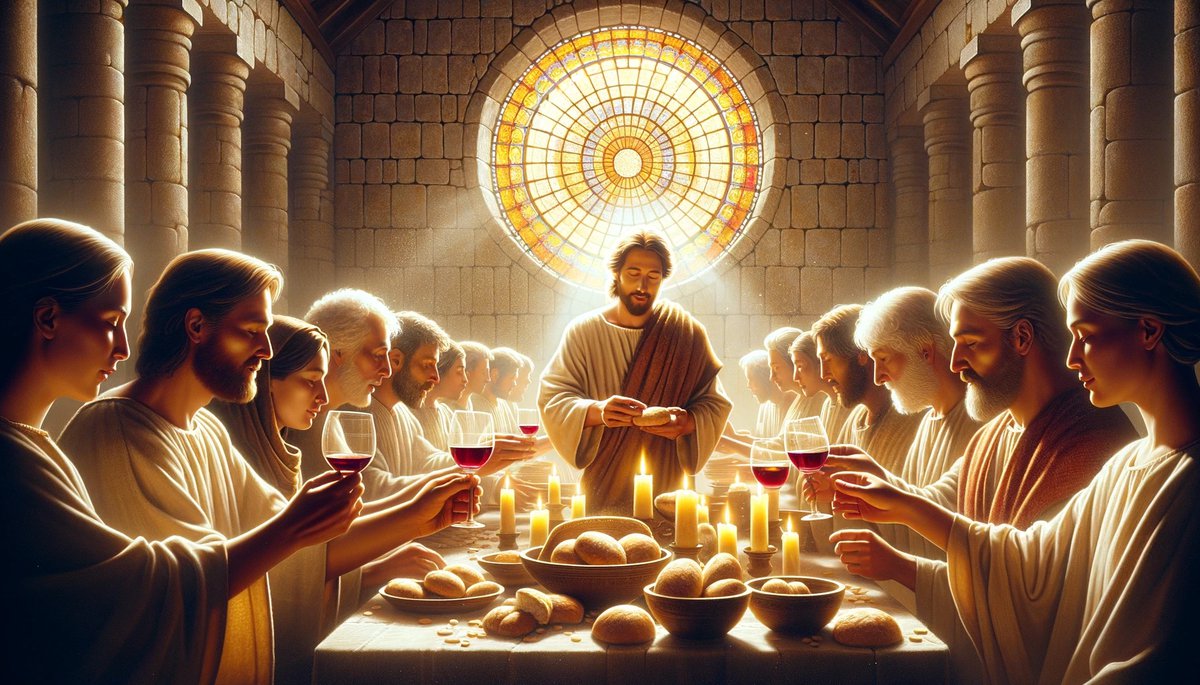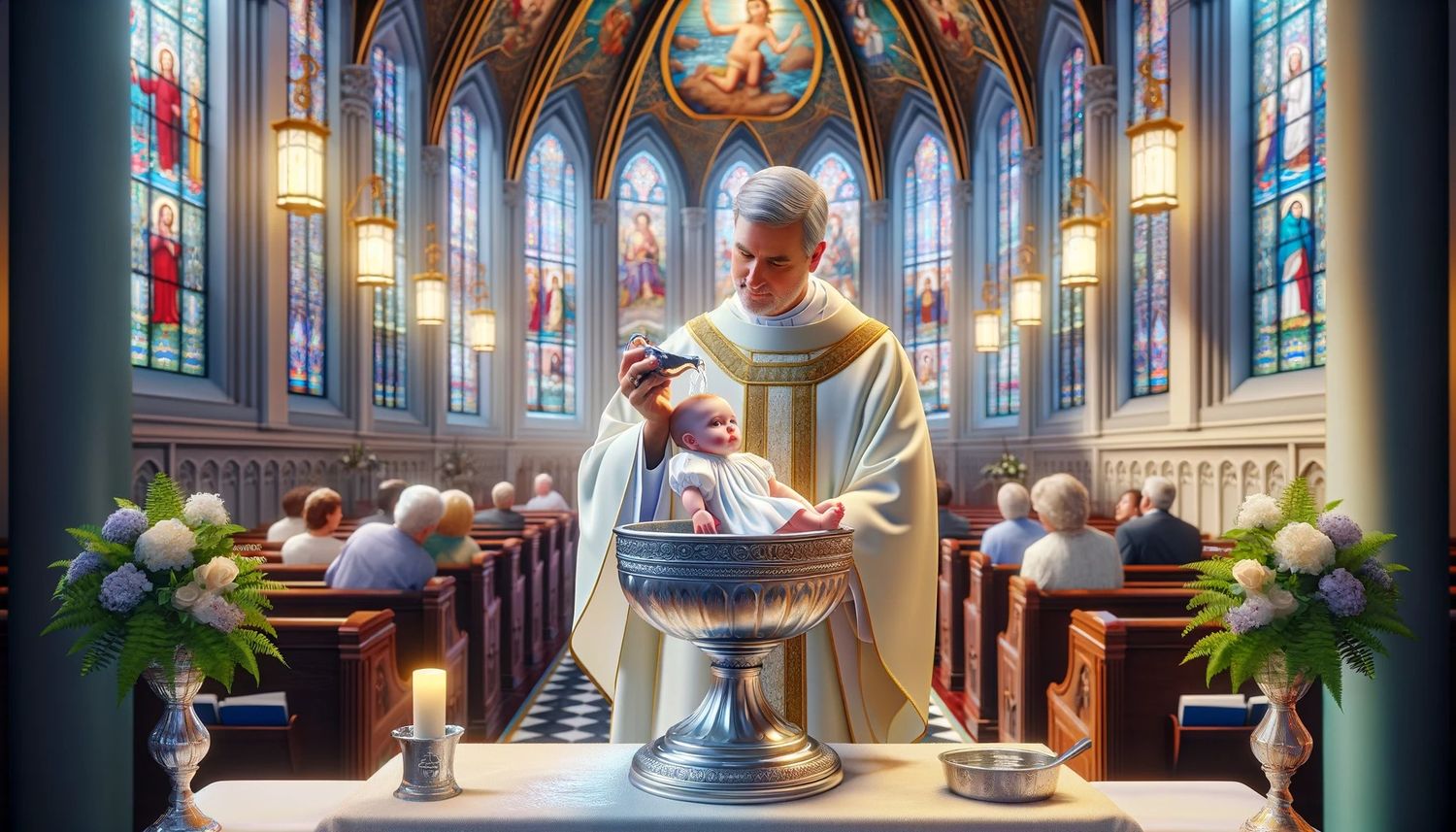Home>Theology and Spirituality>What Is Full Communion In The Catholic Church


Theology and Spirituality
What Is Full Communion In The Catholic Church
Published: February 25, 2024
Ericka Andersen, an editor at Christian.net, expertly merges digital strategy with content creation, focusing on faith and societal issues. Her communication skills enhance the platform's engaging narratives, fostering meaningful dialogue on belief's impact on society.
Learn about full communion in the Catholic Church and its significance in theology and spirituality. Explore the principles and implications of full communion.
(Many of the links in this article redirect to a specific reviewed product. Your purchase of these products through affiliate links helps to generate commission for Christian.net, at no extra cost. Learn more)
Table of Contents
Introduction
Full communion in the Catholic Church is a concept deeply rooted in the theology and practice of the Church. It represents a state of complete unity and mutual recognition among different Christian communities, particularly within the context of the Roman Catholic Church and other Christian denominations. This state of full communion is a reflection of the Church's aspiration for unity among all Christians, as expressed in Jesus Christ's prayer "that they may all be one" (John 17:21).
The concept of full communion is not merely a theoretical or abstract idea; rather, it has profound implications for the spiritual life and mission of the Church. It embodies the Church's commitment to fostering understanding, collaboration, and shared witness among diverse Christian traditions, all while upholding the essential teachings and traditions of the Catholic faith.
As we delve into the intricacies of full communion, it is essential to recognize the significance of this concept in the broader context of Christian unity. This exploration will shed light on the theological underpinnings, practical implications, and challenges associated with the pursuit of full communion within the Catholic Church and its relationships with other Christian communities. Through this journey, we will gain a deeper understanding of the profound spiritual and ecclesial dimensions of full communion and its pivotal role in the Church's mission to manifest the unity of all believers in Christ.
Definition of Full Communion
Full communion in the Catholic Church refers to the state of complete ecclesial unity and mutual recognition between the Roman Catholic Church and other Christian communities, particularly those possessing valid sacraments and apostolic succession. It signifies a profound bond of spiritual fellowship and shared faith that transcends denominational boundaries, allowing for the seamless participation in the sacramental life and worship of the respective communities.
At its core, full communion embodies a deep sense of solidarity and mutual recognition of the authenticity of each other's sacraments, ministries, and teachings. It acknowledges the essential elements of the Christian faith present in both the Roman Catholic Church and the partner Christian community, affirming their common baptismal identity and the presence of the Holy Spirit in their respective traditions.
This state of full communion is not a merger or assimilation of distinct traditions, but rather a dynamic and organic relationship characterized by respect for each other's ecclesial heritage and theological distinctiveness. It fosters a spirit of cooperation, dialogue, and shared witness, enabling the exchange of spiritual gifts and resources for the enrichment of the entire Body of Christ.
In essence, full communion reflects the Church's commitment to realizing the unity that Christ willed for His followers, as articulated in the New Testament and the teachings of the early Church fathers. It is a tangible expression of the Church's pursuit of unity amidst diversity, affirming the diverse yet interconnected expressions of the Christian faith while upholding the fundamental truths and values that bind all believers together.
This concept of full communion is not confined to abstract theological discourse; rather, it finds practical expression in the celebration of the Eucharist, the sharing of spiritual resources, collaborative efforts in addressing social issues, and the pursuit of common mission and evangelization. It is a living reality that shapes the ecclesial relationships and interactions between the Catholic Church and other Christian communities, embodying the Church's enduring commitment to the unity of all believers in Christ.
The Importance of Full Communion
Full communion holds profound significance within the Catholic Church and the broader Christian community, serving as a pivotal expression of the Church's commitment to unity, reconciliation, and collaborative witness. Its importance is multifaceted, encompassing spiritual, ecclesial, and missional dimensions that resonate deeply with the core values of the Christian faith.
At its heart, full communion reflects the Church's adherence to Christ's prayer "that they may all be one" (John 17:21), emphasizing the essential unity of all believers in Christ. This unity is not merely a symbolic or theoretical construct but a lived reality that shapes the Church's identity and mission. Full communion underscores the Church's acknowledgment of the diverse yet interconnected expressions of the Christian faith, fostering a spirit of inclusivity and mutual respect across denominational lines.
From a spiritual perspective, full communion nurtures a sense of spiritual solidarity and shared faith among diverse Christian traditions. It affirms the presence of the Holy Spirit in the life and worship of each community, recognizing the sanctity and validity of their sacraments and ministries. This spiritual interconnectedness fosters a deep sense of belonging and mutual enrichment, allowing for the exchange of spiritual gifts and resources for the edification of the entire Body of Christ.
Ecclesially, full communion signifies the Church's commitment to dialogue, understanding, and reconciliation among different Christian communities. It promotes an ethos of cooperation and mutual recognition, transcending historical divisions and fostering a renewed sense of ecclesial fellowship. This commitment to unity amidst diversity reflects the Church's aspiration to embody the inclusive love and reconciliation exemplified in the life and teachings of Jesus Christ.
Moreover, full communion holds immense missional significance, as it enables collaborative efforts in addressing social issues, promoting justice, and engaging in shared evangelistic endeavors. It amplifies the collective impact of the Church's witness, allowing for a unified response to contemporary challenges and opportunities. Through full communion, the Church can more effectively manifest the transformative power of the Gospel in a world marked by division and fragmentation.
In essence, the importance of full communion lies in its capacity to embody the unity, reconciliation, and collaborative witness that lie at the heart of the Christian faith. It serves as a beacon of hope, inspiring the Church to transcend barriers, embrace diversity, and work together in fulfilling its mission of proclaiming the love and truth of Christ to all nations.
Requirements for Full Communion
Achieving full communion between the Roman Catholic Church and other Christian communities entails a deliberate and multifaceted process that encompasses theological, liturgical, and canonical considerations. While the specific requirements may vary depending on the particular Christian tradition seeking full communion, several fundamental elements commonly underpin this transformative journey toward unity.
Doctrinal Agreement
Central to the pursuit of full communion is a shared commitment to essential doctrinal truths and theological principles. This entails a thorough examination and affirmation of the core beliefs and teachings that define the respective Christian communities. It involves engaging in constructive dialogue to identify areas of doctrinal convergence and addressing theological differences with a spirit of openness and mutual respect. The process often involves theological commissions and ecumenical dialogues aimed at fostering a deeper understanding of each other's doctrinal heritage and theological perspectives.
Recognition of Sacraments and Apostolic Succession
A critical aspect of achieving full communion involves the mutual recognition of the validity and efficacy of sacraments, particularly the Eucharist and baptism, within the respective Christian traditions. This recognition extends to the apostolic succession and the validity of ordained ministries, ensuring that the sacramental life and pastoral leadership of each community are acknowledged and respected by the other. This often necessitates a careful examination of the historical and liturgical practices, as well as the apostolic lineage, to ascertain the authenticity and continuity of sacramental grace within the traditions seeking full communion.
Canonical Reconciliation
The process of full communion also entails addressing canonical and jurisdictional considerations to ensure a harmonious integration of the respective ecclesial structures. This may involve reconciling differences in canon law, ecclesiastical governance, and disciplinary norms to facilitate a seamless collaboration and mutual recognition of the ecclesial authority within the unified framework of full communion. It often requires the establishment of protocols and mechanisms for resolving canonical discrepancies and ensuring the smooth transition toward a shared ecclesial governance model that respects the autonomy and integrity of each tradition.
Spiritual and Pastoral Collaboration
Beyond doctrinal and canonical considerations, achieving full communion necessitates a genuine commitment to fostering spiritual and pastoral collaboration between the Catholic Church and the partner Christian communities. This involves cultivating opportunities for joint prayer, shared spiritual resources, and collaborative pastoral initiatives aimed at nurturing a sense of ecclesial fellowship and mutual support. It also entails exploring avenues for joint mission and evangelistic efforts that leverage the collective strengths and resources of the unified Christian witness.
Commitment to Unity and Reconciliation
At the heart of the requirements for full communion lies a profound commitment to unity, reconciliation, and mutual recognition of the diverse yet interconnected expressions of the Christian faith. This entails a willingness to embrace the challenges and opportunities inherent in the journey toward unity, fostering a spirit of humility, patience, and perseverance in navigating the complexities of ecclesial convergence. It requires a shared commitment to overcoming historical divisions, fostering a culture of reconciliation, and embodying the inclusive love and unity exemplified in the life and teachings of Jesus Christ.
In essence, the requirements for full communion demand a comprehensive and intentional engagement with doctrinal, sacramental, canonical, and pastoral dimensions, all guided by a steadfast commitment to realizing the unity that Christ willed for His Church. It is a transformative journey that calls for discernment, dialogue, and a shared vision of ecclesial unity, reflecting the enduring hope and prayer for the fulfillment of Christ's desire "that they may all be one" (John 17:21).
The Benefits of Full Communion
The pursuit and attainment of full communion between the Roman Catholic Church and other Christian communities yield a myriad of profound benefits that reverberate across the spiritual, ecclesial, and missional dimensions of the Church's life and witness. These benefits extend far beyond mere theological agreements and institutional unity, permeating the very fabric of the Church's identity and mission.
At the spiritual level, full communion fosters a deep sense of interconnectedness and mutual enrichment among diverse Christian traditions. It affirms the sanctity and validity of each other's sacraments and ministries, nurturing a shared spiritual fellowship that transcends denominational boundaries. This spiritual solidarity engenders a profound sense of belonging and mutual support, enriching the spiritual lives of believers and deepening their understanding of the diverse expressions of the Christian faith. Through full communion, the Church experiences a renewal of spiritual vitality and a heightened awareness of the Holy Spirit's active presence in the life and worship of each community.
Ecclesially, the benefits of full communion are manifested in the fostering of dialogue, understanding, and cooperation among different Christian traditions. It cultivates an ethos of mutual recognition and respect, transcending historical divisions and nurturing a renewed sense of ecclesial fellowship. This collaborative spirit extends to shared pastoral initiatives, joint prayer gatherings, and the exchange of spiritual resources, enriching the ecclesial life of both the Catholic Church and its partner Christian communities. Full communion empowers the Church to embody the inclusive love and reconciliation exemplified in the life and teachings of Jesus Christ, fostering a visible unity that bears witness to the transformative power of the Gospel.
Moreover, full communion holds immense missional significance, amplifying the collective impact of the Church's witness and outreach. It enables collaborative efforts in addressing social issues, promoting justice, and engaging in shared evangelistic endeavors. By uniting the strengths and resources of diverse Christian traditions, full communion equips the Church to more effectively manifest the transformative power of the Gospel in a world marked by division and fragmentation. This collective witness serves as a compelling testament to the reconciling and unifying love of Christ, drawing others to experience the richness of the Christian faith in its diverse yet harmonious expressions.
In essence, the benefits of full communion encompass a profound spiritual enrichment, ecclesial fellowship, and missional empowerment that resonate with the core values of the Christian faith. It is a tangible expression of the Church's commitment to unity, reconciliation, and collaborative witness, embodying the enduring hope for the fulfillment of Christ's prayer "that they may all be one" (John 17:21).
Challenges to Full Communion
The pursuit of full communion between the Roman Catholic Church and other Christian communities is not without its complexities and challenges. These obstacles, rooted in historical, theological, and practical considerations, often present formidable hurdles on the path toward achieving a state of complete ecclesial unity and mutual recognition. Understanding and addressing these challenges is essential for navigating the journey toward full communion with wisdom and discernment.
One of the primary challenges to full communion lies in the theological differences and doctrinal divergences that have historically shaped the distinct identities of various Christian traditions. These theological nuances, ranging from ecclesiological perspectives to sacramental theology, can pose significant obstacles to the harmonization of beliefs and practices essential for full ecclesial unity. Addressing these theological disparities demands a spirit of humility, open dialogue, and a willingness to engage in deep theological reflection and discernment to seek common ground while respecting the integrity of each tradition's theological heritage.
Historical divisions and institutional complexities within the diverse Christian traditions also present significant challenges to the pursuit of full communion. The legacy of past schisms, disputes, and institutional separations has left enduring marks on the ecclesial landscape, shaping distinct ecclesiastical structures, governance models, and canonical norms. Reconciling these historical and institutional differences requires a deliberate and patient effort to navigate the complexities of ecclesial integration, jurisdictional harmonization, and the reconciliation of canonical discrepancies within the framework of full communion.
Furthermore, the cultural and contextual diversity inherent in the global expressions of Christianity introduces additional challenges to the pursuit of full communion. The unique cultural, liturgical, and pastoral traditions embedded within different Christian communities enrich the tapestry of the Church's life but also present complexities in fostering a unified ecclesial identity and practice. Balancing the unity of faith with the diversity of cultural expressions necessitates a nuanced approach that respects the legitimate diversity while fostering a shared ecclesial ethos that transcends cultural and contextual boundaries.
Navigating the complexities of full communion also entails addressing practical considerations related to ecclesial governance, pastoral collaboration, and the integration of diverse spiritual and pastoral resources within a unified framework. This requires a careful discernment of the practical implications of full communion, including the shared administration of sacraments, the coordination of pastoral ministries, and the equitable distribution of ecclesial responsibilities within the context of mutual recognition and collaboration.
In essence, the challenges to full communion underscore the intricate and multifaceted nature of the journey toward ecclesial unity. Addressing these challenges demands a spirit of humility, patience, and discernment, guided by a shared commitment to realizing the unity that Christ willed for His Church. By navigating these challenges with wisdom and grace, the pursuit of full communion becomes a transformative journey that embodies the enduring hope for the fulfillment of Christ's prayer "that they may all be one" (John 17:21).
Conclusion
In conclusion, the concept of full communion in the Catholic Church represents a profound aspiration for unity, reconciliation, and collaborative witness among diverse Christian traditions. It embodies the Church's commitment to realizing the unity that Christ willed for His followers, reflecting the enduring hope and prayer for the fulfillment of Christ's desire "that they may all be one" (John 17:21). The pursuit of full communion entails a transformative journey that encompasses theological, ecclesial, and missional dimensions, shaping the Church's identity and mission in profound ways.
Throughout this exploration, we have delved into the definition, importance, requirements, benefits, and challenges of full communion, illuminating the theological underpinnings and practical implications of this concept. We have recognized the significance of full communion in fostering spiritual solidarity, ecclesial fellowship, and missional empowerment, serving as a tangible expression of the Church's commitment to unity amidst diversity.
The requirements for full communion demand a comprehensive and intentional engagement with doctrinal, sacramental, canonical, and pastoral dimensions, all guided by a steadfast commitment to realizing the unity that Christ willed for His Church. It is a transformative journey that calls for discernment, dialogue, and a shared vision of ecclesial unity, reflecting the enduring hope and prayer for the fulfillment of Christ's desire "that they may all be one" (John 17:21).
Despite the challenges inherent in the pursuit of full communion, including theological differences, historical divisions, institutional complexities, and cultural diversity, the Church is called to navigate these obstacles with wisdom, humility, and patience. By doing so, the Church can embody the inclusive love and reconciliation exemplified in the life and teachings of Jesus Christ, fostering a visible unity that bears witness to the transformative power of the Gospel.
In essence, the pursuit of full communion is a testament to the Church's enduring hope for unity, reconciliation, and collaborative witness, embodying the essential unity of all believers in Christ. It is a journey that calls the Church to transcend barriers, embrace diversity, and work together in fulfilling its mission of proclaiming the love and truth of Christ to all nations. As the Church continues to navigate the complexities and challenges of full communion, it does so with the enduring hope and prayer that all may be one in Christ, manifesting the unity that reflects the heart of the Christian faith.



